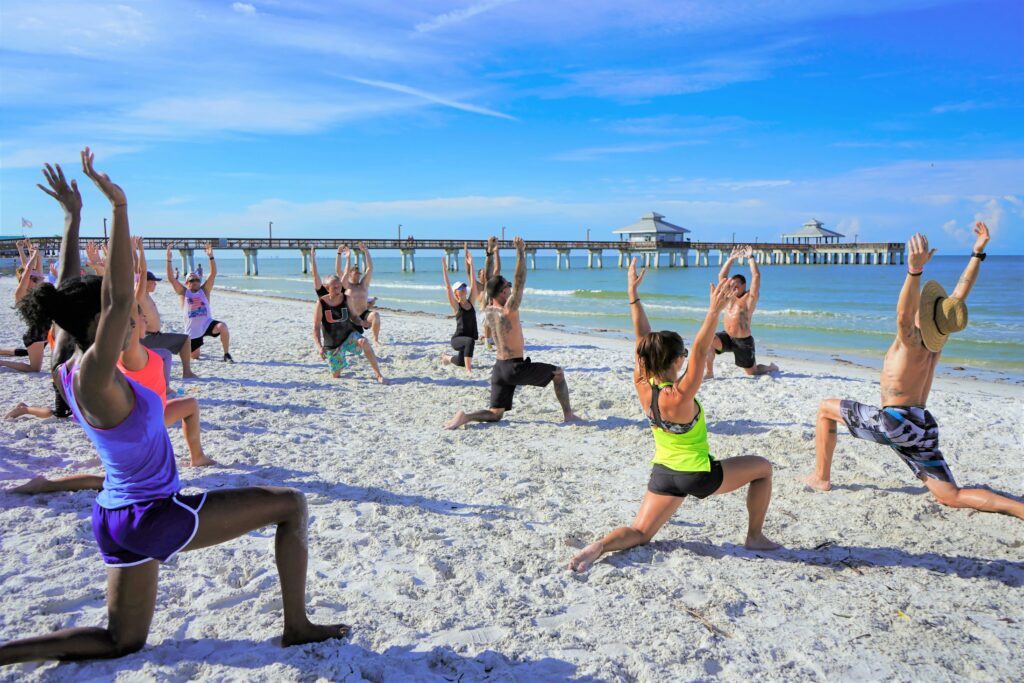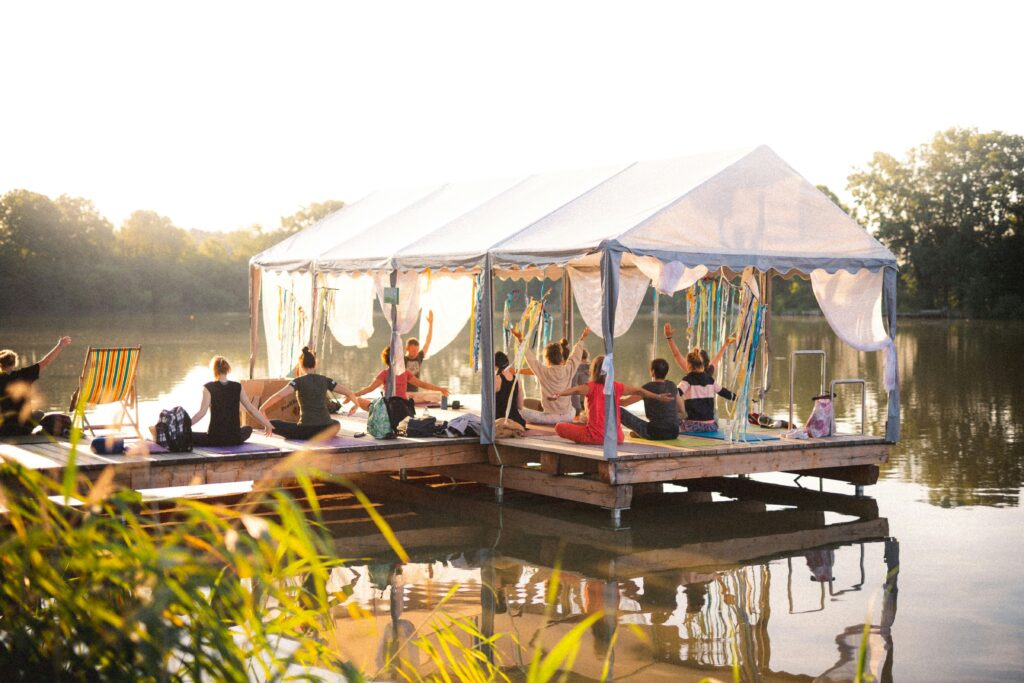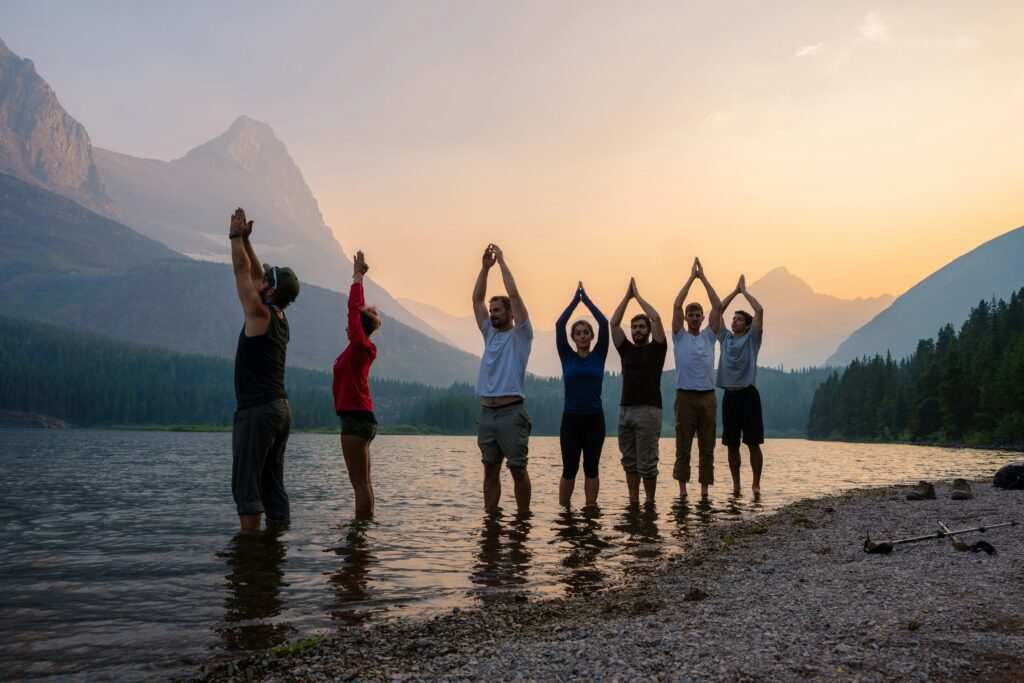Most people wait until exhaustion hits before booking a yoga retreat.
But the truth is, the right time to go isn’t when you’ve burned out — it’s when you first notice the signs that something in your rhythm needs to change.
A retreat isn’t an escape; it’s a space for recalibration.
And while social media often portrays it as a holiday with yoga classes, a true retreat goes deeper: it rebuilds attention, restores energy, and resets the relationship between body and mind.
If any of the following feel familiar, you’re not just ready for a retreat — you may already be asking for one without realizing it.

1. You’ve lost consistency in your practice
Maybe you used to practice yoga regularly, but lately it’s reduced to the occasional class — or none at all.
You still think of yourself as “someone who does yoga,” but your mat sits untouched, and the energy that practice once gave you now feels distant.
A retreat can reestablish rhythm. Immersing yourself in daily sessions removes the friction of decision-making — no choosing when or where, no phone buzzing between poses.
You move, breathe, rest, and eat in sync with others who are doing the same.
Structure becomes a form of freedom.
If your inner voice keeps saying “I need to get back into it,” that’s the first signal.
You don’t need motivation; you need an environment that reminds you why you started.
2. Your nervous system feels overloaded
When your body stays tense even during downtime, or your breath stays shallow even while lying down, it’s not just stress — it’s nervous system fatigue.
A yoga retreat gives that system permission to reset.
Many modern retreats integrate gentle movement with restorative practices, sound baths, and breathwork designed to calm the vagus nerve.
That’s not just “relaxation”; it’s physiology.
When you spend a few days in a parasympathetic state, digestion improves, sleep deepens, and the mind becomes capable of reflection again.
If you’ve forgotten what deep rest feels like, a retreat can help your body remember before your mind even catches up.
3. You crave depth, not distraction
Scrolling used to entertain you. Now it drains you.
You catch yourself doing three things at once but feeling productive at none of them.
You might even start to notice that the moments you enjoy most are the quiet ones — the coffee in silence, the walk without headphones, the minutes before the world wakes up.
That shift means you’re ready for depth.
A yoga retreat gives it structure — silence without loneliness, stillness without boredom.
The external simplicity (limited phone use, repeated schedules) gives your mind space to move inward.
If you’ve been craving “something real” but don’t know what it is, it’s probably presence. A retreat helps you find it.

4. You’re seeking clarity, not escape
There’s a difference between wanting to get away and wanting to see clearly.
One numbs; the other heals.
A well-designed retreat doesn’t remove you from life — it mirrors it in slow motion.
Without constant input, your thoughts start to separate: what’s essential rises to the surface, what’s noise dissolves.
Many retreats integrate journaling or mindful reflection sessions for that reason: they turn rest into understanding.
If you’re facing a decision, a transition, or a feeling of “stuckness,” clarity doesn’t come from pushing harder.
It comes from stepping aside and letting stillness do the sorting.
5. You’re ready to invest in wellbeing that lasts
There’s a difference between taking a break and changing your pace.
Weekend getaways can recharge you — but they rarely rewire you.
A retreat invites you to slow down long enough for your habits to shift.
When you live without screens for most of the day, eat mindfully, move consciously, and rest deeply, your baseline changes.
That’s why the best retreats include integration practices — reflections, body scans, journaling prompts — that help you carry those habits home.
If you’ve already read this far, you’re likely not looking for a vacation; you’re looking for alignment.
That’s what a yoga retreat offers: not escape, but recalibration.
How to choose a retreat that truly supports you
The right retreat will feel aligned even before you arrive.
Here’s what to look for when choosing:
- Transparency: A clear daily schedule and honest photos of the setting.
- Small groups: Fewer participants mean more personal attention and quiet.
- Balanced program: Equal focus on movement, rest, and integration.
- Experienced teachers: Those who guide with presence, not pressure.
- Accessibility: Travel that feels manageable, not stressful.
If a retreat’s page makes you exhale — that’s usually your sign.
Trust that feeling more than glossy promises.

Why this matters now
In a world that glorifies productivity, rest has become a radical act.
But slowing down isn’t indulgence — it’s maintenance.
A yoga retreat isn’t a reward for burnout; it’s a way to prevent it.
You don’t have to be “broken” to deserve rest.
You only have to notice when your system whispers for pause — and respond before it has to scream.
